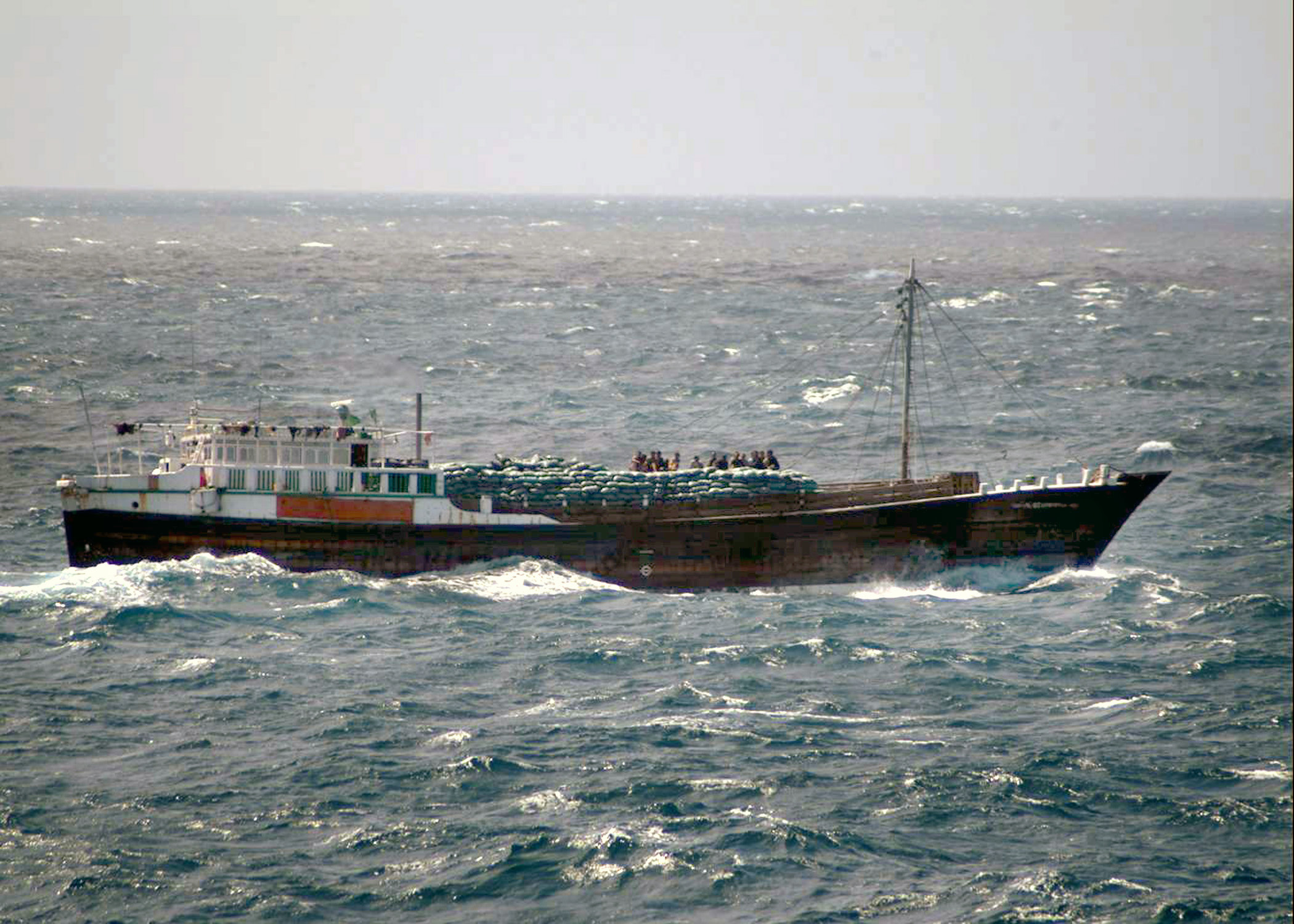According to Alain de Benoist, in order to understand transnational terrorism, it must be considered within the context of the rapid expansion of ‘grey areas’ in the world. These grey areas include the ‘proliferation of urban jungles in the large megapolises in the global south’; international drug trafficking rings; private military contractors; and the ‘cyberguerillas’ able to engineer artificial stock market crashes. Alongside what de Benoist calls the ‘de-institutionalisation’ of politics, we find the double-edged logic of de-territorialisation. On one hand, we are faced with elusive and shadowy terror networks lacking a concrete territorial basis. On the other hand, we have a globalising force that aims not to conquer new land, but rather to secure access to open markets and open borders. The underlying logic is a ‘maritime logic of deterritorialisation.’
According to certain authors, the conditions permitting terrorism to thrive are reminiscent of those that sustain piracy: permeable international boundaries, ineffective law enforcement, poverty, and political instability. Both piracy and terrorism involve sub-state actors who form extraterritorial enclaves and perpetrate violence against civilians. Similar to terrorism, piracy erodes regime legitimacy, triggers economic destabilization, and constitutes a direct threat to the citizens of flag states.
The maritime shipping system can act as a convenient conduit for weapons or personnel movement. In fact, some analysts fear the emergence of a tactical terrorism-piracy nexus, derived from the possibility that extremist groups will work in conjunction or subcontract out to maritime criminal syndicates.
Although pirates are often assumed to be motivated by pecuniary factors, some of the Barbary corsairs who operated in the Mediterranean during the Ottoman period subscribed to a religious ideology in which they saw themselves at war with Christian infidels. Taking these similarities between piracy and transnational terrorism into account,perhaps we can look to the history of piracy for lessons learned to face the present-day challenges of transnational terrorism.
Donald J. Puchala asserts that, historically, the equivalent of a ‘war on piracy’ recurs periodically. For instance, piracy was a problem in the Mediterranean around the turn of the first century, in the Baltic and North Sea in the fifteenth century, in the Spanish Caribbean between 1500-1750, on the Barbary Coast and in the Indian Ocean and Western Pacific in the 18th and 19th centuries.
Attacks by pirates are, at first, sporadic and small-scale. However, often they escalate in frequency and intensity until seaborne trade is compromised. At this stage, combating piracy necessitates methods reminiscent of organized warfare, with the formation of organized anti-piracy navies, the targeting of pirate strongholds, and the apprehension of leaders and sympathizers.
In order to counter transnational terrorism, one should draw on older concepts inspired by anti-piracy and combine it with new technologies, such as precision targeting and drone strikes. The most effective way to counter piracy, from a historical perspective, was to ruthlessly hunt down and destroy the perpetrators. In order to be effective, the anti-piracy campaign needed to have strong political backing. Usually this decision was made at the highest levels of government, often by the hegemon of the era acting unilaterally. In this sense, we gather that, in order to be effective, anti-terrorism has to be proactive, denying pirates access to safe havens and changing the mind-sets of those who sympathize or draw profit from piracy.
According to Ariel Colonomos, arguments made by classical thinkers such as Hugo Grotius favouring anticipatory strikes against hostile non-state actors, such as pirates hiding within a weak state, is akin to contemporary arguments supporting preventive strikes against alleged terrorists. In fact, both can be deemed ‘unlawful combatants.’ Grotius supports the use of anticipatory strikes against non-state enemies, even if such action would not normally fall under the category of self defense.
Like piracy, terrorism is effective because it enjoys the advantages of asymmetric warfare, which is used by those who wish to maximize their limited resources in order to intimidate the adversary. Intelligence is key to eroding the effectiveness of asymmetric tactics. Solutions to unconventional threats need to draw on diverse means, integrating police, military, and political forces.
In closing, in order to find effective techniques to counter transnational terrorism, we should look to anti-piracy campaigns from the past to see what combat lessons were learned. Above all, in order to be successful, the campaign needs political support from the highest levels of government and must have an emphasis on denying pirates sanctuary and discouraging pirate supporters and sympathizers.




